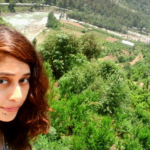When I was younger, the things I disliked about myself the most was my ethnicity, my legs, and my constant thinking. It took me many years to realize that these differences were my strengths.
The first time someone asked me “what I was” (See Explaining Your Ethnic Situation), I was five or six and confidently stated, “White.” I thought that was the correct answer to any and all situations, or I didn’t know what they were talking about.
Up until then—growing up in the suburbs of Atlanta—I had a suspicion I was something other than white. We spoke in a different language at home; cooked with a lot of spices and ate fermented foods; and, most obviously, I looked different. Yes, these were differences, but could they possibly amount to something important like identity? It marked the introduction of an identity crisis.
Not much time passed after that initial encounter before I realized I was Korean. It was only hours later my brother informed me of the truth over a fit of laughter, realizing his little sister thought she was white. Being that young, I remember thinking, “So what does this mean?”
For the better part of the next decade, I was determined to find out what being Korean didn’t mean.
I could have non-Asian friends, I could choose Britney or Ludacris over Korean music, and I was free to layer myself in Hollister (Hello 2000’s).
I was as enthusiastic about being Korean as I was when my mom bought me a congratulatory cake for getting my period. It’s true… No ethnic background could have saved me from pressing myself into the mold I perceived as southern suburbia.
I have always had large, muscular legs—or what kids would call tree trunks—something I inherited from my dad. At age twelve, I started training harder for tennis and my legs grew wider and all the more muscular, making it impossible to find good jeans (still a problem).
Kids made it clear that I was different, gargantuan, and beastlike. And that was reason enough for me to be mad that they were stuck on my body—and I thought they were u-g-l-y, ugly.
There’s the age preschoolers hit when they become walking and wailing broken records stuck on “Why?” They ask, or rather, demand whys regardless of the explanation. Despite a little less wailing, I never quite grew out of that phase; I posed questions to myself and turned the answers over and over until I thought of more questions.
People like to say to me, “Don’t overthink it.” If there was a penny for every time someone offered me that piece of advice, the world would be drowned in a flood of pennies. I believe I do have a “rich inner life,” as the great Amy Schumer puts it.
I’ve fallen mercy to it in situations where being present and interaction with others is expected. Socializing, I think is what they call it. It often felt debilitating; I’d think out my responses, weighing them against the replies I’d thought I’d get.
I loathed these differences about myself; I wished instead to not think. I wished to be carefree and say whatever floated into my mind. It recently dawned on me there’s a term for that—drunkenness.
And so, my inner monologue was also one of self-criticism. Sure, children can be cruel, but none are worse than your own demons that feed on your insecurities.
The commonality among all of these qualities was that they each made me different; they made me feel different because I didn’t match up to the people around me. The essence of what I craved was acceptance. Our default setting is to slap judging labels on qualities that threaten our shot at it.
It’s only later, through broader experiences, that I realized differences aren’t dangerous, they’re what makes us who we are. In accepting them in myself, I could love them in others.
It took a long time to come to terms with my heritage, my body, and the way I’m wired. And it’s still taking time. But having experienced Korean culture firsthand during time spent with my relatives in Seoul; after winning matches thanks to the power and speed of my legs; and after meaningful conversations that arose from asking too many questions, the things I disliked about myself are now the ones I celebrate these days.


